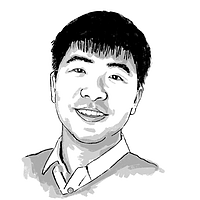Confronting ‘intergroup anxiety’: Can you try too hard to be fair?
Loading...
Why do some of us, despite our best intentions, feel self-conscious when we meet people who are transgender, disabled, or otherwise marginalized by our society? Psychologists call it “intergroup anxiety,” and it’s very common. But even though intergroup anxiety typically arises from a desire to appear fair to others, it can often end up perpetuating social inequalities. “Because your anxiety is so high, the irony is that you might exhibit more manifestations of discrimination and prejudice,” says L. Song Richardson, Dean and Chancellor’s Professor of Law at the University of California, Irvine. How do we overcome it? The answer may lie in what motivates our desire to actually be fair. When we’re driven by external factors such as appearance, we become anxious, says Gordon Moskowitz, Chair of Lehigh University’s Department of Psychology. “But another type of egalitarian goal is one which is derived from our value system.” These “internally-set standards of how to live and act,” he says, “do not lead to anxiety.”
This piece first appeared in the Jan. 29, 2019 edition of The Christian Science Monitor Daily.







